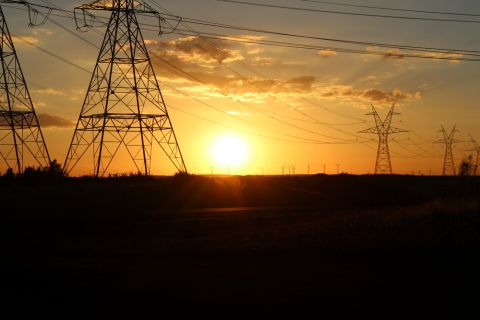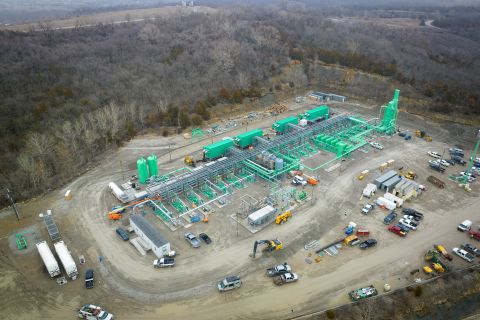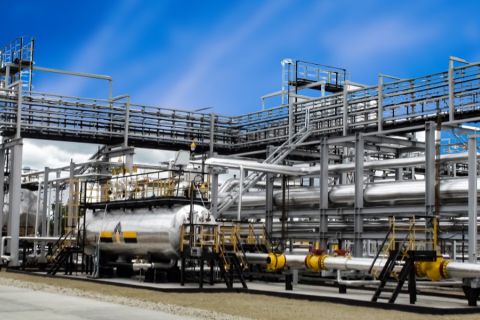No recounts, please. Norwalk, Connecticut-based energy research firm John S. Herold Inc.'s group of 307 energy securities improved 48% at year-end 2000, from year-end 1999, in a "revenge of the energy stock," compared with the Dow's 6% and the Nasdaq's 39% declines, according to the firm's year-end tally. Nearly 25% of the energy securities doubled in price, led by gas, gas, gas: gas producers, land drillers (most of them drilling for gas) and the gas midstream sector. The valve began to turn last spring. "We believe it noteworthy that Nasdaq's apex in March [dragged down by the demise of the dot-coms] corresponded closely to the year's bottom for oil share prices," write the Herold surveyors, Robert E. Gillon, Nicholas D. Cacchione, Aaron Johnson and chief executive Arthur L. Smith. "...Lo and behold, supply and demand fundamentals were taking control." If Al Gore invented anything (other than the Internet), it has been increased interest in natural gas (the cleaner fuel), which helped spur many energy industry securities to incredible performances in 2000. Gas-weighted Oklahoma City-based Chesapeake Energy Corp. began 2000 at about $2. Come $4 then $6 then $10 gas, CHK was glowing at a whopping $10 per share. No fuzzy math, here. With forecasts of at least $3.50 gas and better-than-$22 oil through 2001, many producers are expecting to increase their production this year, through exploration and development, with cash flow, and still have a fat enough wallet for stock buybacks, debt reduction and other programs. "Summertime, and the livin' is easy," the Herold stockwatchers quote from the lyrics of Porgy and Bess (1935), in the year-end 2000 report. Gas securities took off when the summer injection season ended with little net gain from winter's end. (The situation has only worsened. Last month, watchers of the commodity were forecasting a shortage of the stuff before this winter's end.) Meanwhile during 2000, oily securities remained buoyed by $30-plus crude oil. OPEC maintained production discipline during the year, despite some counter-encouragement from former energy secretary Bill Richardson. Presidential wannabe Gore stepped in, winning the release of 30 million barrels of Strategic Petroleum Reserve oil in the hope that New Englanders wouldn't be too miffed about heating-oil prices, when voting at the polls. Still, no relief. The Nymex price of oil did not fall below $30 until a month after Election Day. "Meanwhile, natural gas prices streaked up so quickly that Californians were forced to shut off their swimming-pool heaters," the Herold reviewers write. Reports of the oil industry's demise were greatly exaggerated. "Obituaries for the oil industry issued in 1998 were premature. So we celebrate the median total return of 48% turned in by Northern Border Partners and offer a toast to top-performing Panaco Inc., which posted a sensational total return of 810.5%." • Panaco began 2000 with a severe debt burden and a 34-cent stock price, but the smell of higher natural gas prices brought it back to life, along with some successful drilling. • Among stocks that began the year at $5 or more, Cross Timbers Oil Co. had the best year, jumping 359% to $27.75. Key Production was a very close second, improving 348%. • Of the top 15 performers among companies that began the year at $5 or better, none were integrated oils. One of the winners, Dynegy Inc., is 26%-owned by an integrated, Chevron Corp. The latter's total return (including dividends) was 0.5%; Dynegy's, 220%. • Of the 15 worst performers, beginning the year at any price, two were majors: Repsol and Lukoil. • The stocks of all 26 of the largest independents improved: the worst market performance among them was an 11% improvement (Kerr-McGee Corp.); the best, 219% (EOG Resources). "Overall, the outlook for the oil industry is favorable," the Herold reviewers conclude. "Liquidity is strong, capital is becoming available and managements are battle-tested. Y2K was an enormously successful time for energy investors. While we doubt that the group will thrash the rest of the market so thoroughly again in 2001, we do believe that the shares can deliver above-average performance."
Recommended Reading
Electrifying Permian Could Threaten West Texas Power Grid—Enverus
2024-04-30 - Emissions reduction targets and cryptocurrency mining could double power demand and threaten the grid in West Texas by 2040, according to a report by Enverus Intelligence Research.
Archaea to Convert Landfill Gas to RNG in New Kansas Plant
2024-04-30 - Archaea Energy’s plant in Shawnee, Kansas, will capture gas from a nearby landfill and convert it to renewable natural gas.
Markman: Want CO2 Gone Now? Well, You Don’t Always Get What You Want
2024-04-29 - A slew of scenarios shows that climate goals can be achieved with the use of fossil fuels and CCUS.
G7 Reaches Deal to Exit from Coal by 2035
2024-04-29 - The accord will be included in the G7 energy ministers' final communique to be released on April 30.



